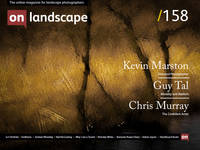Realism in photography is the exception, not the norm. We should treat it as such
These may seem selfish considerations; but you can't, in sound morals, condemn a man for taking care of his own integrity. It is his clear duty. And least of all can you condemn an artist pursuing, however humbly and imperfectly, a creative aim. In that interior world where his thought and his emotions go seeking for the experience of imagined adventures, there are no policemen, no law, no pressure of circumstance or dread of opinion to keep him within bounds. ~Bertrand Russell
The topic of morality as it pertains to photographic realism (or, as it is often characterised: the ethics of “manipulation”) came up in several discussions I participated in recently. My position is that, as photographers working at this time in history, we should educate our audiences to not consider photographs by default as realistic depictions, whether we happen to aim for such realism in our own work or not.
Realism in photography should only be assumed in some contexts and when sufficient evidence for it is offered (if only a statement from the photographer to that effect). More important, I believe that we should help our audience understand that realism, as a criterion by which to evaluate photographs, is only relevant in those cases where a photograph is intended to serve an evidentiary purpose–a commemoration of the appearance of some object or scene at a point in time; and even in those cases, photographs should not be assumed by default to be truthful, even if ostensibly realistic.
There are many uses for photography in which realism is not only irrelevant but can be an unnecessary imposition and a barrier to greater appreciation of photographs as aesthetic experiences in their own right, rather than as visual records. Possessing such understanding, a knowledgeable viewer may find tremendous joy in non-representational photographs. Quoting Minor White, “The more knowledge (including technical, psychological, historical, and personal) that a viewer brings to a photograph, the richer will be his experience.”


